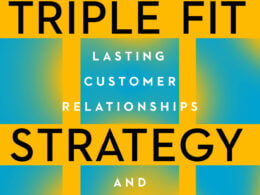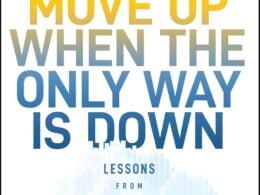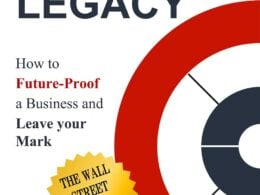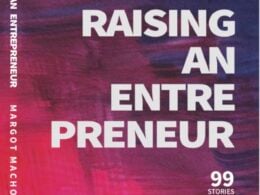This modified excerpt is from THE FIRST, THE FEW, THE ONLY: How Women of Color Can Redefine Power in Corporate America by Deepa Purushothaman. Copyright ©2022 by the author and reprinted by permission of Harper Business.
I have met more senior women of color in the past few years who have left companies to start their own endeavors than those who have stayed in Corporate America. So many women of color I met shared that they left corporate spaces to be themselves and enjoy their work, to own their schedules and realize their ambitions, and to find meaning and success. The women I met are leaving to set up companies that operate with WOC-friendly practices and offer a unique point of view of the world.
One Black woman, a professor who has written about gender, race, and class in the business world, said it didn’t surprise her that many WOC opted out of corporate. “Who wants to die in Corporate America?” she said. “We don’t want to take over the plantation. We can see what it is doing to white men. We don’t want that.” She emphasized that we don’t want to sacrifice ourselves; we want to follow our own dreams and define our own legacy.
As I spoke with women who have recently exited, they shared that the system on the outside isn’t set up for us, either. It can be tough to raise money, to get venture capitalists to notice us, and to sit across from a table of men trying to sell yourself. But even though the new pressure of finding stability and a constant paycheck now falls squarely on them, many still relish in this new agency.
Less than twelve months into my own journey of being an entrepreneur, I have found it scary and liberating at the same time. I have found moments where I am in my full voice and also felt the pains of not having a steady paycheck and not having the safety net of a global brand to back me up. But in the end, I would not alter my decision to leave. Going out on my own has taught me the power of my own network and allowed me to focus on work that is deeply meaningful in the world right now. Here is some advice I collected and things I thought about when deciding to leave corporate to start my own business.
Take your knowledge with you
Tiffany Dufu, author of Drop the Ball: Achieving More by Doing Less and founder of The Cru, a peer coaching platform for women looking to accelerate their professional and personal growth, shared that many WOC, especially senior WOC, forget they are experts and seasoned professionals when they think of leaving their corporate roles to start their own endeavors. She reminded me that I was one of them, and that we often take our wisdom and skills for granted. Tiffany often coaches WOC who are plagued with doubt about whether they have what it takes to start a company because of the delusions that tell us we are dispensable and dependent on the larger organization we came from for success.
Be open-minded about risks
Tiffany wants WOC—and especially more experienced women—who aim to be entrepreneurs to see that going out on their own with a set of products or services is actually a diversified business model, and less scary than putting all our eggs in the basket of a corporate career. She says, “When your livelihood isn’t tied to one brand, you can find your voice.” She believes that WOC “parse themselves and leave parts out to get ahead in corporate structures.”
Build zebras, not unicorns
WOC need to carry with them how powerful they are and know that this power can be used to create businesses and workplaces that operate in new ways. “We forget we have had to sacrifice to rise,” she reminds us, “and we forget what we have left at the door when we enter corporate spaces.” Tiffany’s unique ideas and her proprietary platform helped her raise $1 million in funding in 2019.
Whether you are leaving to create a for-profit company, to solve a social issue, or to create a hybrid or benefit company that focuses on social change, there are ways to intentionally place ideas of inclusion and equity at the center of the equation. In the article “Zebras Fix What Unicorns Break,” the authors and cofounders of Zebras Unite talk about how the current venture capital structure rewards quantity over quality, and quick exits rather than sustainable growth.
Venture capital chases after “unicorn“ companies rather than supporting “zebra” businesses that repair, cultivate, and connect. But “zebras” are real, and they are profitable and can improve society. They are also mutualistic in that they protect and preserve one another.
As we leave our roles and look to create our own businesses, I hope more WOC venture out to solve meaningful problems and repair bias, inequity, and the barriers that make it hard for all people to rise and thrive. We can expand beyond shareholder value and the delusion of profit at any cost. We can build companies that place equal weight on culture and employee well-being.
Grow your support networks
Julia Collins, the founder of Zume Pizza and now Planet FWD, is focused on health and the planet, and she has raised over $450 million in VC funding as a Black female founder. She says it can be hard as a WOC founder and that it is important to build community around you. Overinvest in these communities because you will need them. Be intentional about developing them and think about them during your leaving process.
Exercise self-care
Julia says, as you are building your company, practice radical self-care. Make sure you wrap yourself in “positive nurturing energy” and pay as much attention to your well-being as your fundraising. There will be breakdowns. It important to take care of yourself so you can avoid or minimize these breakdowns. You will feel alone, but if you have your community of “we,” know your power, and practice self-care, you can get through it.
Own your ability to decide
Weighing the pros and cons of staying or leaving can feel like the angst of a prisoner’s dilemma, but there is power in owning the ability to decide. So many people go through their careers without realizing that, at every moment, they have a choice. Women of color in challenging situations need to move into a mindset that they don’t need to tolerate systems that don’t support them. Just like any relationship, only we will know whether to fish or cut bait. Sometimes we are ready to jump, and sometimes we are biding our time. Sometimes the workplace is too toxic to do anything but get out.
No matter what you decide—whether to stay and help create change from the inside, or to leave and make change from the outside—the power resides in you.
“The First, the Few, the Only: How Women of Color Can Redefine Power in Corporate America” is available now and can be purchased below via StartupNation.com.






